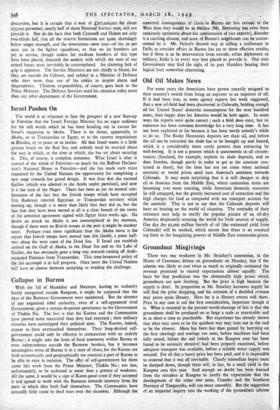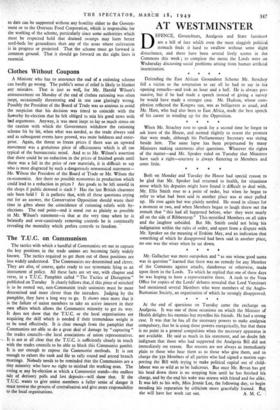Groundnut Misgivings
There was one weakness in Mr. Strachey's contention, in the House of Commons debate on groundnuts on Monday, that if the scheme was likely to cost twice as much as originally estimated the revenue promised to exceed expectations almost equally. The basis for that prediction was the abnormally high prices which groundnuts are now fetching. But the price is high because the supply is short. In proportion as Mr. Strachey increases supply he will find the price dropping, and his estimate of a doubled revenue may prove quite illusory. How far it is illusory events will show. Price in any case is not the first consideration, important though it is. What is essential in the present world-shortage of fats is that the groundnuts shall be produced on as large a scale as practicable and in as short a time as practicable. But experience has already shown that what may seem to be the quickest way may turn out in the end to be the slowest. More has been lost than gained by hurrying on the first clearingi and sowings too soon, before machines had been fully tested, before the soil (which in the Kongwa area has been found to be seriously abrasive) had been properly examined, before adequate transport was available, before a reliable water supply was assured. For all this a heavy price has been paid, and it is impossible to contend that it was all inevitable. Clearly immediate hopes must be damped down, though there will, in fact, be a small yield in the Kongwa area this year. And enough no doubt has been learned from the mistakes at Kongwa to justify the expectation that the development of the other two areas, Urambo and the Southern Province of Tanganyika, will run more smoothly. But the suggestion of an impartial inquiry into the working of the groundnuts scheme to date can be supported without any hostility either to the Govern- ment or to the Overseas Food Corporation, which is responsible for the working of the scheme, particularly since some authorities which must be respected hold that drained swamps may form better seed-beds for groundnuts than any of the areas where cultivation is in progress or projected. That the scheme must go forward is common ground. That it should go forward on the right lines is essential.







































 Previous page
Previous page